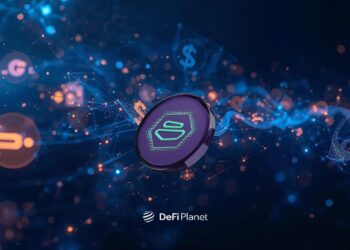Scammers and hackers frequently target blockchain platforms because they handle millions of financial transactions involving valuable digital assets daily. History is replete with numerous instances of crypto platforms being attacked.
For instance, hackers carted away $100 million in cryptocurrencies from Horizon, a blockchain bridge, in the latest significant theft in the crypto industry.
In the most recent significant theft in the cryptocurrency industry, hackers carted away $100 million in cryptocurrencies from Horizon, a blockchain bridge.
Mirror Protocol, one of Terra’s decentralized finance platforms, was reportedly hit by a new wave of attacks. Community members were concerned about a suspected issue with the LUNC price oracles.
Ola Finance, a decentralized lending platform, lost $3.6 million in cryptocurrencies to a hacker who utilized a re-entrancy attack to drain funds from the protocol.
The three attacks mentioned above are just three of many that occurred in the crypto space in 2022.
Most blockchain platforms are governed by smart contracts. Smart contracts are software codes that ensure the crypto platform functions effectively. Sometimes, these codes may be manipulated and used negatively by attackers. Blockchain platforms often implement security architecture to prevent these attacks, including smart contract audits.
This article analyzes the definition of smart contracts, smart contract audits, and why smart contract audits are a crucial security measure.
What is a Smart Contract?
Smart contracts are automated multi-party agreements. They are designed to address the shortcomings of traditional contracts, which can be altered. In a traditional contract, the entire process is overseen by a lawyer who drafts the agreement and remains present during negotiation and signing. They may also retain the final agreement in their custody.
It is immutable, which means that once it is added to the blockchain, no one can change the terms of the agreement. Smart contracts are also fully automated. It immediately automates itself once the terms of the agreement are met. For example, if a user purchases a parametric insurance package from a decentralized insurance company, the smart contract pays the user immediately if the agreement’s conditions are met.
What is a Smart Contract Audit?
A smart contract audit examines the smart contract code for loopholes, bugs, and inefficiencies. The importance of smart contract auditing can’t be overemphasized, particularly in the decentralized finance space.
Typically, an experienced blockchain security firm conducts the audit, which includes analyzing the code for errors, running a battle test to see if it breaks, and looking for loopholes that hackers can exploit.
Millions of dollars worth of assets pass through the DeFi space regularly, making them a prime target for hackers. These hackers attempt to exploit the smart contracts that govern the operations of DeFi platforms.
For instance, Smart contracts are crucial to controlling the liquidity pool. When a bug in the code is discovered, a hacker may exploit it to trick the system and drain the funds in the pool.
A smart contract audit usually happens in stages.
First, the project team submits its smart contracts to the blockchain audit firm. The code is given to a blockchain security firm to run an integrity test on it.
Second, after testing the code’s integrity and looking for flaws, the audit team sends its findings to the client project. Typically, the first test reveals a series of code modifications that must be made to reduce the risk of hackers gaining access.
Third, the client project reviews the findings and makes modifications based on what the audit team reported. Before endorsing a project, the blockchain security company sends a detailed list of issues that must be addressed.
Fourth, once the changes are made, the audit team examines the code to see if the suggestions were implemented and if so, a final report is made public.
Before the final report is released, most projects resolve all of the issues raised by the audit team.
Why Are Smart Contract Security Audits Necessary?
Smart contracts are essential components of blockchains and decentralized apps that rely on blockchain technology.
Some of the victims of DeFi and NFT hacks had their smart contracts exploited by hackers. The siphoned funds may be returned in some cases, but this is uncommon.
As a result of the financial losses and potential bankruptcy risks associated with attacks, it is essential that platforms undergo smart contract audits to identify and correct bugs in the code.
The following are some of the reasons for smart contract audits.
Professional analysis
Blockchain security firms or smart contract audit teams are usually well-versed in the inner workings of smart contracts and how hackers exploit the strings of code that constitute smart contracts.
When an attack occurs, these firms typically analyze the loopholes that the hacker used to game the system. They then devise solutions to prevent the attack from happening again.
Smart contract security audit allows blockchain platforms to access the insight of professional blockchain security firms. Platforms manually validate their code to reduce the risk of a hack.
Public confidence
Another reason for smart contract audits is to improve the confidence of potential users. An investor may be concerned about the safety of their funds in a liquidity pool managed by a decentralized exchange. They can check the exchange’s smart contract audit report to be sure. If the report was written by a well-known blockchain security firm, the level of confidence in such decentralized exchange increases.
Analytical reports
The audit team generates analytical reports based on the result of smart contract audits.
Typically, the report highlights the project’s vulnerabilities, provides an executive summary of what was discovered, and concludes with recommendations. This report is usually made public.
Cost effective
Some blockchain platforms are audited before they are made available to the public. In some cases, the audit session could be conducted earlier in the development process to ensure that errors are quickly identified and rectified. Errors can sometimes necessitate a costly system overhaul.
Smart contract security audits performed early enough could detect these issues before they cause untold damage.
Security architecture
Smart contract audits are conducted to assess project security and improve weak points. The audit report informs the project that its code is secure and likely battle-tested.
What are the Types of Smart Security Audit?
When a smart contract is audited, the audit team uses standards such as the Solidity Code Style Guide to search for flaws.
The programming language used for a smart contract may differ depending on the underlying blockchain. Some developers may use Solidity to create a smart contract, especially if the code is based on Ethereum.
Projects on some blockchains can use multiple programming languages.
Various audit methods are used to analyze the code of smart contracts, as shown below.
Manual Audit
A manual audit involves an audit team of experienced professionals analyzing every line of code for issues or bugs.
The team goes through the code with a fine tooth comb, looking for poor encryption elements, compilation errors, and other issues.
They search for errors that audit software may overlook while analyzing the code.
This takes more time and may not be appropriate for projects that need to publicize their functionalities quickly.
Manual auditing provides the expertise of professionals who can better understand the context of the code and identify errors than software auditing.
Automated Audit
The smart contract code is submitted into audit software to analyze and detect errors during the automated audit.
They are typically faster than manual auditors and display the sections with bugs.
This is ideal for projects that need to publish their platform quickly. Projects may employ both automated and manual audit methods at times.
In Conclusion,
- Smart contracts are automated multi-party agreements.
- Smart contract audit examines the smart contract code for loopholes, bugs, and inefficiencies.
- Smart contract security audits are usually conducted by blockchain security firms such as Certik.
- Positive smart contract audit reports have the effect of increasing public trust in blockchain projects.
- Smart contract security audits are classified into manual and automated audits.
If you would like to read more articles like this, visit DeFi Planet and follow us on Twitter, LinkedIn, Facebook, and Instagram.
“Take control of your crypto portfolio with MARKETS PRO, DeFi Planet’s suite of analytics tools.”





















